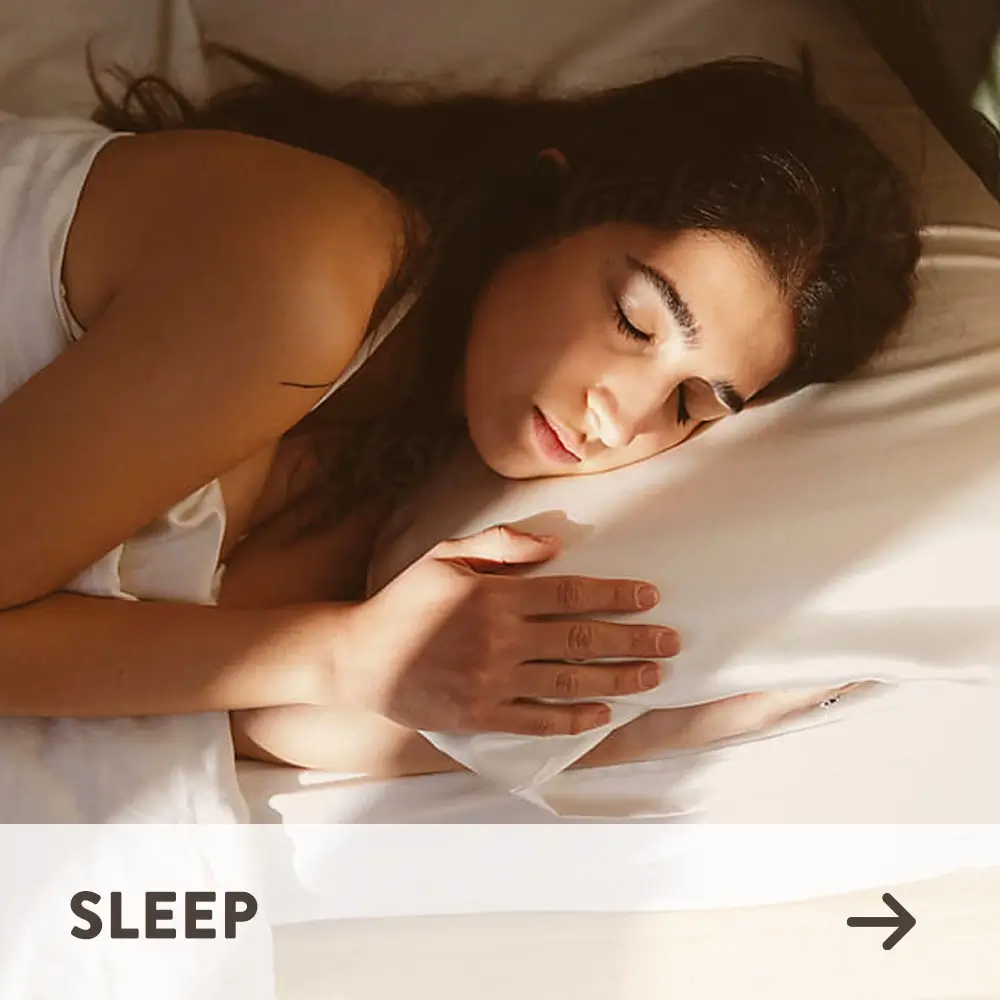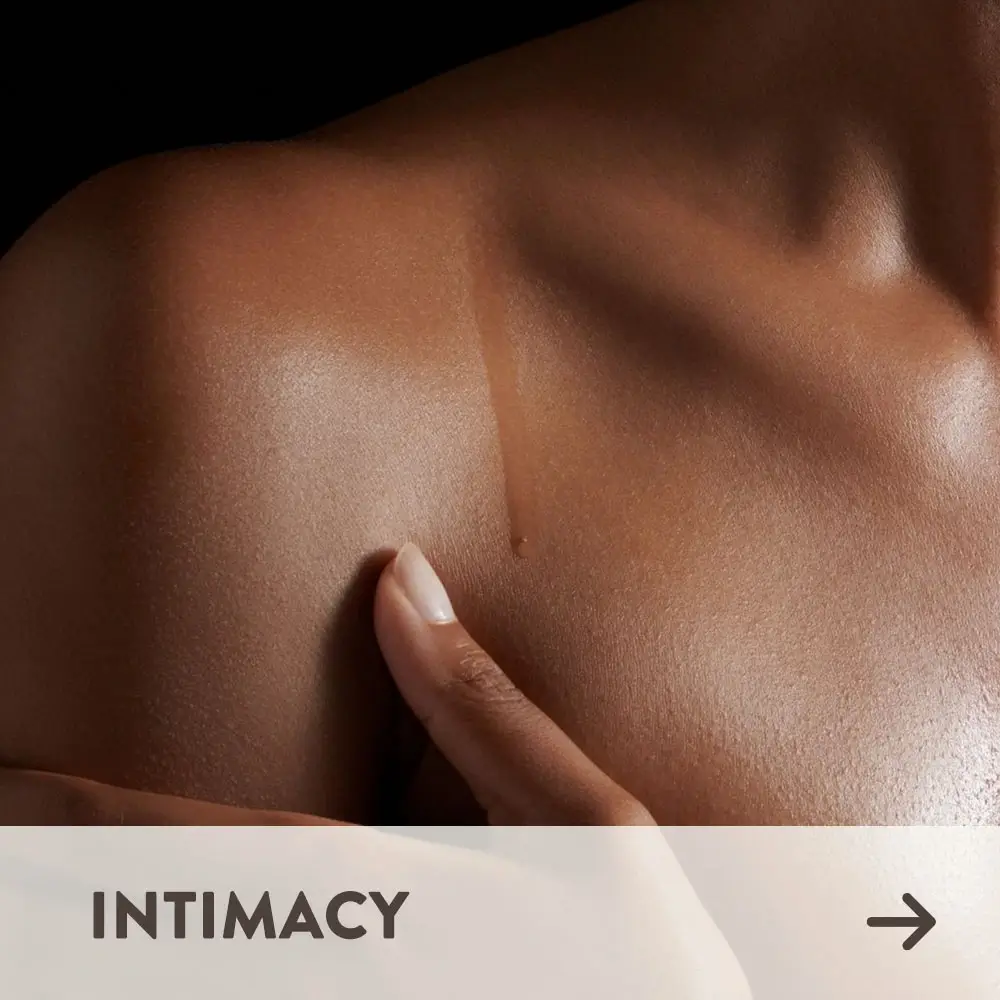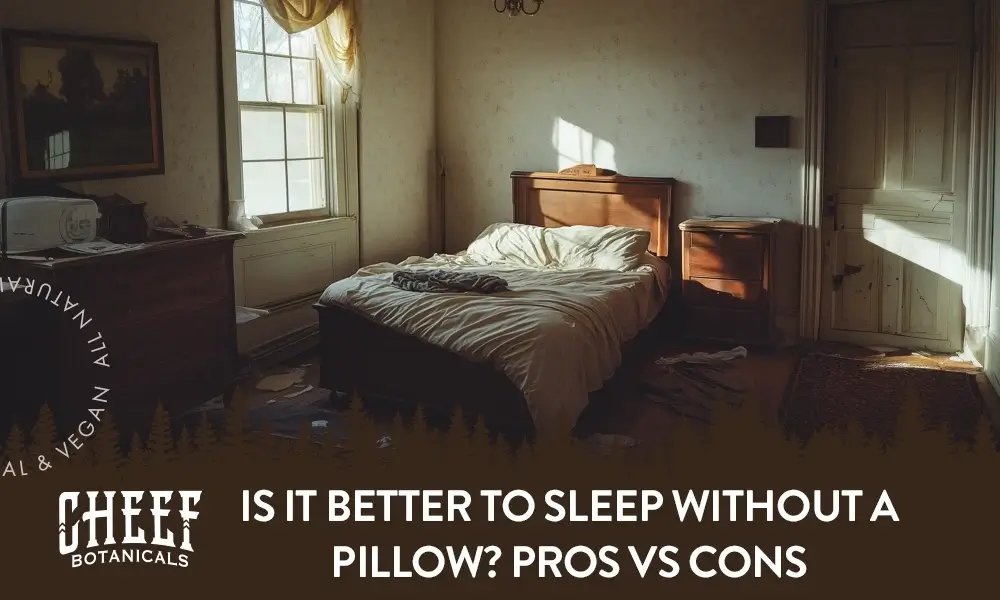Is it better to sleep without a pillow? Many people wonder if ditching their pillow could lead to better spinal alignment or help reduce neck pain. Your sleep position plays a big role here, especially for stomach sleepers who might feel more comfortable on a flat surface. However, sleeping without a pillow isn’t the perfect solution for everyone.
The pros and cons of sleeping pillow-free depend on your sleep style, neck muscles, and overall sleep posture. It might help some, but for others, it could cause more harm. Read on to learn how your pillow affects your sleep quality and overall comfort.

The Purpose of Pillows in Sleep
Pillows support your neck and keep your spine aligned. A good pillow makes a big difference, especially for side or back sleepers, by keeping your sleep position natural. It also helps reduce strain on your neck and shoulders, so you wake up feeling better.
If your pillow isn’t doing its job, you might deal with neck, shoulder, or back pain. You may also experience poor posture. The right one can improve your sleep quality and leave you more comfortable overall.
How Pillows Support Posture and Alignment
Pillows help keep your body in the right position while you sleep. They support your neck and make sure your spine stays neutral so you don’t wake up sore. A thin pillow can work wonders for back sleepers, while side sleepers might need something a bit firmer to avoid an awkward angle.
When your pillow fits your sleep style, it prevents shoulder pain and helps with spinal alignment. A good pillow can make all the difference for better sleep and less discomfort.
Common Pillow Types and Their Uses
Not all pillows are the same, and choosing the right one can change your sleep quality. No matter if you sleep on your side, back, or stomach, there’s a pillow made just for you. Here’s a look at some common types and how they help:
- Memory Foam Pillows. These adjust to your head and neck, offering built-in neck support. Perfect for keeping the spine aligned, especially for back and side sleepers.
- Thin Pillows. Great for stomach sleepers who need less height to avoid an unnatural position. A thin pillow beneath the head can improve comfort.
- Body Pillows. These are ideal for side sleepers, providing extra support for the hips, knees, and lumbar spine.
- Firm Pillows. Best for those who need better spinal alignment and want to avoid awkward angles.
- Cotton Pillows. Lightweight and breathable, they suit most sleep styles but may lack the support of memory foam or body pillows.
The Pros of Sleeping Without a Pillow
Sleeping without a pillow might sound unusual, but it offers some surprising benefits. For certain sleep styles, it can help with spinal alignment, improve sleep posture, and even reduce neck and shoulder pain. While it’s not for everyone, it can work well for stomach sleepers or those dealing with specific issues. Let’s explore these benefits in more detail.
Improved Neck and Spine Health
Sleeping without a pillow can help keep your cervical spine in a neutral position. This is especially true for stomach sleepers, as a very thin pillow—or none at all—prevents your neck from bending at an awkward angle. A flat surface supports better spinal alignment and may reduce tension in your neck muscles.
For those who experience neck pain, this simple change might make a big difference. Finding a comfortable position without a thick pillow may improve your sleep quality over time.
Reduced Pressure on the Face and Skin
Sleeping without a pillow can ease pressure on your face and skin, which is great for avoiding irritation. Thick pillows often press your face into an unnatural position, causing discomfort or even frizzy hair. A flat surface or a very thin pillow lets your skin rest naturally without added strain.
For stomach sleepers, a folded blanket or thin pillow beneath the head can provide just enough support. You may even notice a better sleep routine and improved hair health by reducing pressure.
May Help Relieve Certain Types of Neck Pain
If you experience neck pain, skipping the pillow might help. Without a pillow, for stomach and back sleep, your neck stays in a more natural curve, avoiding the unnatural position that thick pillows can cause. This simple change supports your cervical spine and neck muscles during sleep.
The Cons of Sleeping Without a Pillow
Sleeping without a pillow isn’t for everyone and may cause discomfort for certain sleep styles. Side sleepers, in particular, might experience strain on their neck or shoulders without proper support.
While it has potential benefits, the cons should also be considered. Let’s look at these challenges more closely.
Discomfort for Side Sleepers
For side sleepers, skipping a pillow can lead to an awkward angle between the head and neck. Without the right pillow height, your neck might feel unsupported, which could disrupt your spinal alignment. This could result in soreness or even shoulder pain after a night’s rest.
A firm pillow is often recommended for side sleepers to avoid these issues. Without it, maintaining a neutral position might become a challenge, impacting your sleep quality and overall comfort.
Potential Strain on the Shoulders and Neck
Sleeping without a pillow may cause strain on the shoulders and neck, especially if you have an unhealthy sleep position. Without proper support, your cervical spine might not stay aligned, leading to aches or tension in your neck or back muscles. This is particularly true for side or back sleepers who rely on built-in neck support.
Using a supportive pillow can prevent strain and improve spinal alignment. The perfect pillow matched to your sleep style can reduce discomfort and improve spinal health.
Transition Discomfort from Sleeping With a Pillow
Switching from a pillow to sleeping on a flat surface can take time. Your body is used to a certain sleep posture, and removing a pillow may initially cause discomfort. This adjustment period might lead to poor posture or interrupted sleep as your neck and back adapt.
To make the change easier, try using a very thin pillow or a rolled towel for a gradual transition. Adjusting slowly allows your body to find a comfortable position without causing pain or strain.
Factors to Consider When Choosing Pillow-Free Sleep
Sleeping without a pillow depends on your sleep style and what your body needs. Stomach sleepers might feel better without a pillow, but side sleepers or back sleepers often need extra support. Think about your sleep position, spine alignment, and comfort when deciding if this choice is right for you.
Your Sleep Position and Its Impact
The way you sleep affects whether going pillow-free works for you. Stomach sleepers often prefer a flat surface or a very thin pillow to avoid bending their neck at an unnatural angle. Side sleepers, however, need support to keep their spine neutral and avoid neck and shoulder pain.
Back sleepers might need a thinner firm pillow to maintain better spinal alignment and support their cervical spine. Your sleep posture and how your body feels in different positions help guide what works best for you.
Adjusting to a Pillow-Free Lifestyle
Getting used to sleeping without a pillow can take time. Start by replacing your regular pillow with a thin pillow or a folded blanket. This can reduce strain on your neck muscles and help your body adjust.
Focus on a natural position that keeps your spine aligned and avoids discomfort. Small changes, like trying different pillow heights or special pillows, make the transition smoother.

Additional Sleep Support Tips
Getting a good night’s sleep often starts with simple habits and the right tools. From creating a calming bedtime routine to choosing products that support relaxation, there are plenty of ways to improve your sleep quality. Here are some naturally effective options to help you wake up feeling refreshed:
- Establishing a Relaxing Pre-Sleep Routine. A consistent nighttime routine signals your body that it’s time to wind down for better sleep. Activities like light stretching, reading, or taking a warm bath can help you relax. Pair these steps with a comfortable position on the right mattress for even better results.
- Using CBD and THC for Relaxation and Sleep Quality. Our CBD + CBN Gummies for Sleep combines hemp-derived CBD, CBN, and melatonin to promote relaxation and help you wake up feeling refreshed. For deeper relaxation, our D9-THC + CBN Gummies for Sleep offer soothing, calm and powerful sedation. Both options feature natural fruit flavors, making them an enjoyable part of your sleep routine.
- The Benefits of Melatonin for Restful Nights. Melatonin is a natural way to support better sleep. It helps regulate your sleep cycle and makes falling asleep easier. Our CBD + CBN Gummies and THC + CBN Gummies contain melatonin for added sleep benefits.
- Aromatherapy and White Noise for Sleep. Lavender or chamomile essential oils combined with white noise can help create a relaxing environment. These additions drown out distractions and improve sleep quality. Pair them with a neutral sleep position to maximize comfort.
- Blue Lotus for Sleep. Blue Lotus promotes relaxation and supports restful sleep. Our Blue Lotus Gummies enhance these effects with D9 THC, CBN, and CBG for additional mood and sleep support. These vibrant gummies make it easy to unwind and enjoy a good night’s rest.
Frequently Asked Questions About Sleeping Without a Pillow
Is Pillow-Free Sleep Better for Certain Health Conditions?
For stomach sleepers, skipping a pillow may reduce neck pain by keeping the cervical spine aligned naturally. It may also reduce strain on the neck muscles and shoulders. However, people with sleep apnea often need a supportive pillow or a CPAP device to improve breathing and maintain better spinal alignment.
Can Sleeping With No Pillow Improve Overall Sleep Quality?
Sleeping without a pillow might improve sleep quality for stomach sleepers by keeping the neck in a natural position. A flat surface or very thin pillow reduces awkward angles that cause discomfort. While it doesn’t work for everyone, some people find it leads to better rest and improved spinal alignment.
Final Thoughts on Sleeping Without a Pillow
Sleeping without a pillow can work well for some, especially stomach sleepers, but it’s not the best option for everyone. It might help with spinal alignment and reduce neck or shoulder pain, but the wrong setup could cause more harm than good. Your sleep style and comfort should guide your choice.
If you’re looking for ways to improve sleep quality, Cheef Botanicals offers trusted, natural products to help you relax and rest better. With the right tools and habits, you can enjoy a comfortable and refreshing night’s sleep.
 FREE Shipping on orders $80+
FREE Shipping on orders $80+

 Sale
Sale 
























